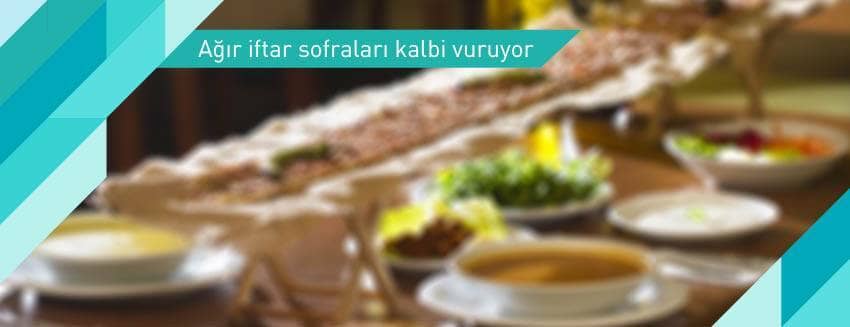
Üsküdar University NPISTANBUL Hospital Cardiology Specialist Prof. Dr. Mehmet Baltalı made important recommendations for heart patients.
Always consult a doctor before fasting
Cardiology Specialist Prof. Dr. Mehmet Baltalı stated that people with heart disease or coronary heart disease should consult a doctor before fasting and said, "Coronary heart patients can fast as long as their condition is stable, that is, as long as their complaints do not increase. There is no harm in fasting, especially for patients who have undergone bypass with stents, as long as their general condition is good and they do not have any acute problems."
Fasting is unfavorable in high blood pressure
Cardiology Specialist Prof. Dr. Mehmet Baltalı stated that it is inconvenient for some patients to fast and listed these patient groups as follows:
"Those with very high blood pressure (those whose blood pressure has been lowered with unstable medication)
Are experiencing or have experienced an acute event (prolonged fasting can trigger this event)
Those at risk of having a heart attack."
How should the medication hours of fasting patients be organized?
Stating that heart patients can change their medication times during Ramadan, Prof. Dr. Mehmet Baltalı said, "If there is no obligation to take medication at the same time, the medication time can be changed. Since many drugs are effective for 24 hours, it may be enough to use them 1 or 2 times a day, so patients should not worry. For example, those with high blood pressure will not have any problems if they monitor their blood pressure when the medication times change. If the patient has high blood pressure, he should consult his doctor if he has any complaints during fasting hours."
Heavy iftar meals can trigger a heart attack
Stating that consuming heavy meals after prolonged fasting may pose a risk of heart attack, Prof. Dr. Mehmet Baltalı said, "The risk of heart attack is not more common in long-term fasting, but when we look in general, the hours when a heart attack occurs can vary. Heart attacks develop after a meal, so heavy food should not be eaten while fasting after a long period of hunger, this situation triggers a heart attack. Fasting people should eat frequently and lightly. Frequent and light meals should be consumed especially between iftar and sahur," he said.
Do not take brisk walks after a heavy meal!
Prof. Dr. Mehmet Baltalı, who also mentioned the importance of exercise during Ramadan, said, "Walking can be done. However, very hot and very cold weather should be avoided. For example, early morning walks in the summer months before the weather gets too hot will be beneficial. Walking in very hot or very cold weather will do more harm than good, especially in fasting people. We do not recommend a brisk walk immediately after a very heavy meal. There should be at least 2 hours between eating and walking and the person doing the exercise should not be too full or too hungry."
Always consult your doctor
Cardiology Specialist Prof. Dr. Mehmet Baltalı drew attention to the fact that people who fast for a long time eat much more and faster because their blood sugar drops, which causes fluctuations in blood pressure and sugar balance. Prof. Dr. Mehmet Baltalı said, "Fluid loss is quite high in fasting on hot days. Therefore, heart, blood pressure and diabetes patients should have a general check-up before Ramadan. People who do not go to the check-up are in danger. Since the disease is not known in advance, it can become an emergency intervention."
